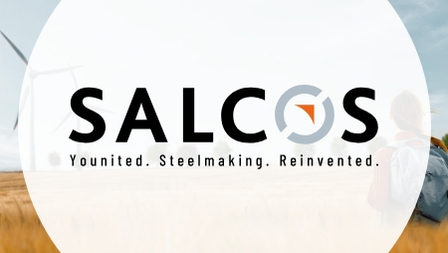Salzgitter Mannesmann Stahlhandel Fürth celebrates 50th anniversary
02.06.2022 | Salzgitter Flachstahl GmbH

On May 20, Salzgitter Mannesmann Stahlhandel celebrated the 50th anniversary of its Fürth location with around 100 invited customers and guests - primarily from the steel construction, construction machinery and sheet metal working and processing sectors.
Herbert Baumgärtner, site manager in Fürth, together with the management of Salzgitter Mannesmann Stahlhandel GmbH, also welcomed former employees in particular and then described the extremely successful development of the site over the past 50 years. The future will be shaped in particular by the environmentally friendly transformation of steel production.

Salzgitter AG's answer to these future questions is the SALCOS program. Sven Schulz, Head of Quality Optimization and Systems at Salzgitter Flachstahl, presented the SALCOS program at the event.
By 2030, the German government and the European Union are calling for a massive reduction of CO2 by up to 65%. The SALCOS program - Salzgitter Low CO2 Steelmaking of Salzgitter AG is the path to virtually CO2-free steel production. It involves the generation of hydrogen and the conversion of steel production from conventional production via blast furnaces to hydrogen-based direct reduction. This process can reduce CO2 emissions by more than 95%.
This will require massive investment and a complete rebuild of the metallurgical shop, which should be completed by the end of 2033.
Until production has been completely converted, Salzgitter Flachstahl, in cooperation with Peiner Träger GmbH, is already offering customers green flat steel through the electric steel plant in Peine. Salzgitter AG was the first European steel producer to receive certification from TÜV Süd that this process route can reduce CO2 emissions by more than 75% for slabs and by more than 65% for hot-dip galvanized coils.
The products have met with great interest in the market. Mr. Schulz explained the cooperation with customers and other partners. Only by building a strong partner network can the value chains be secured and the social challenges be met.







